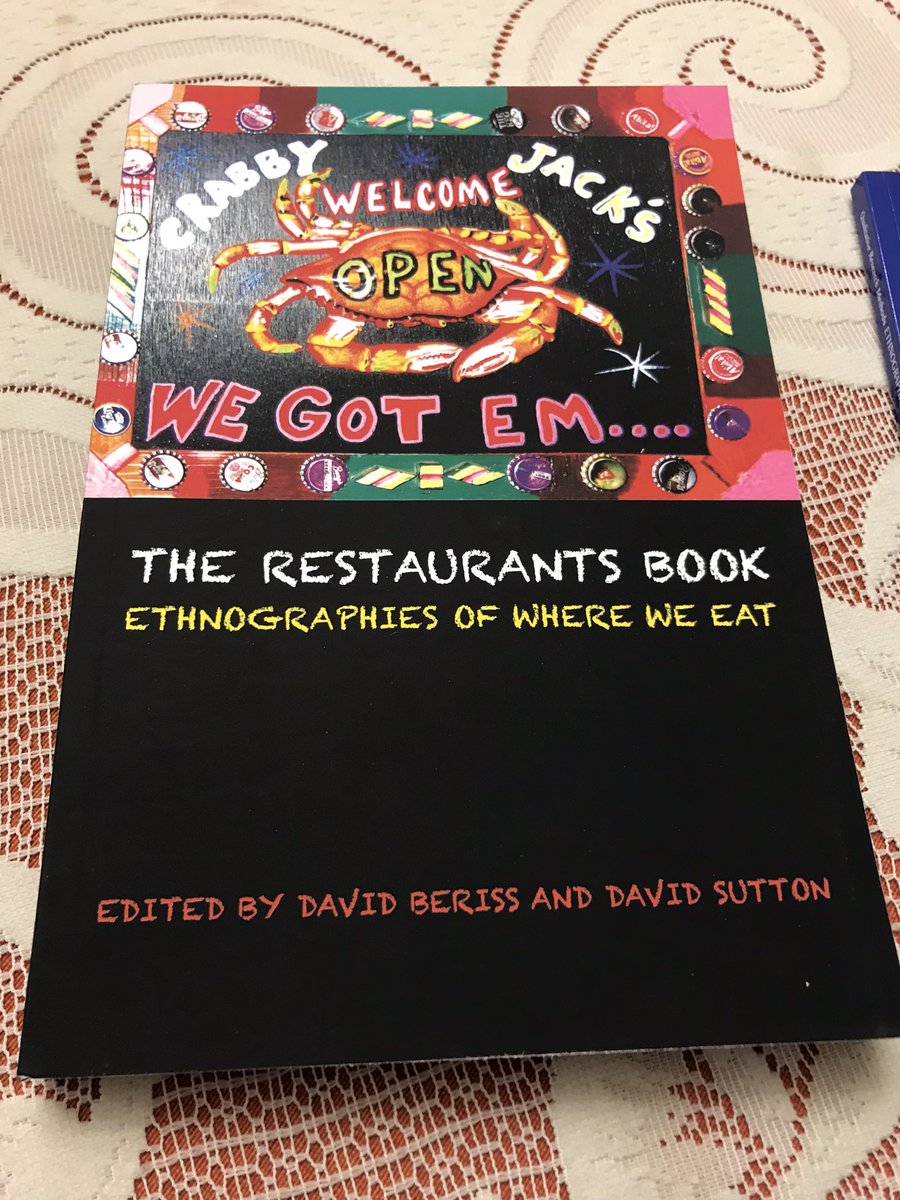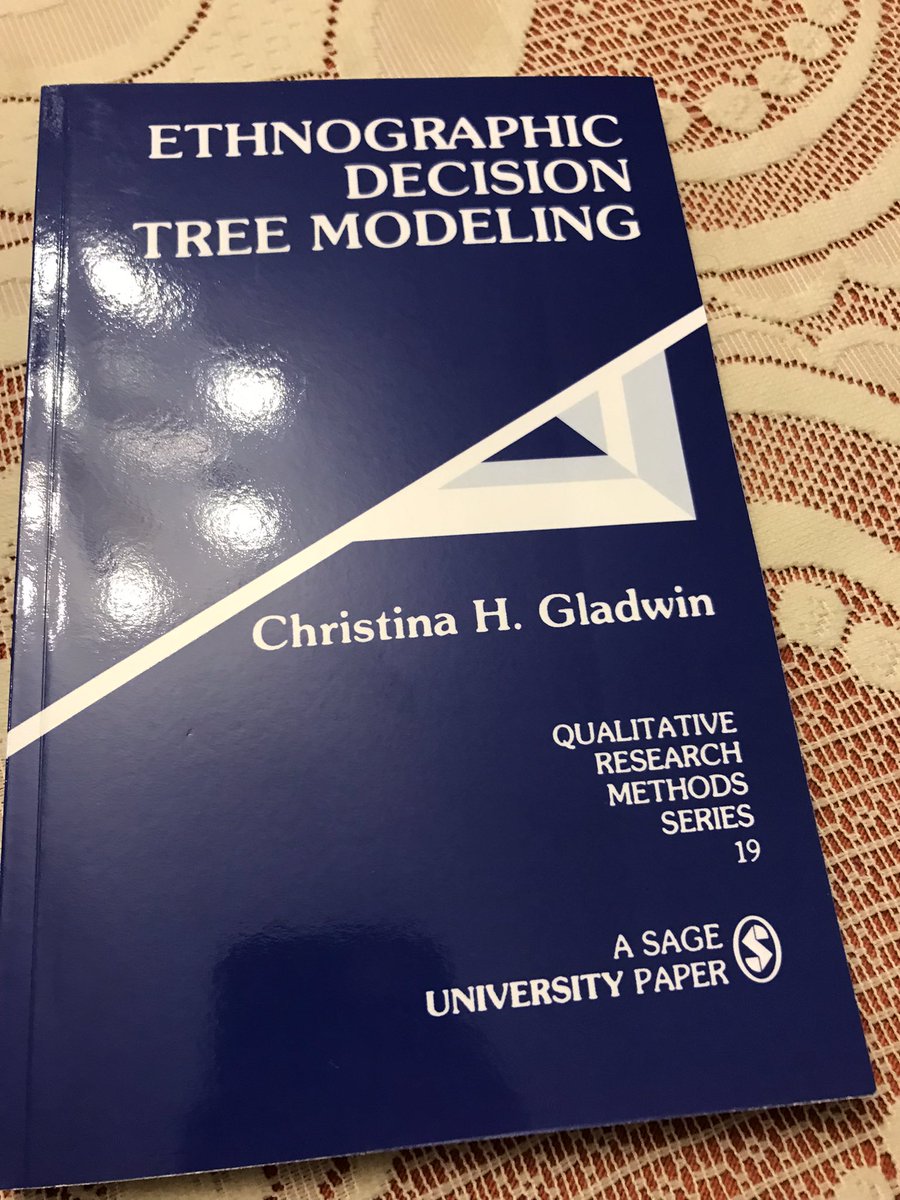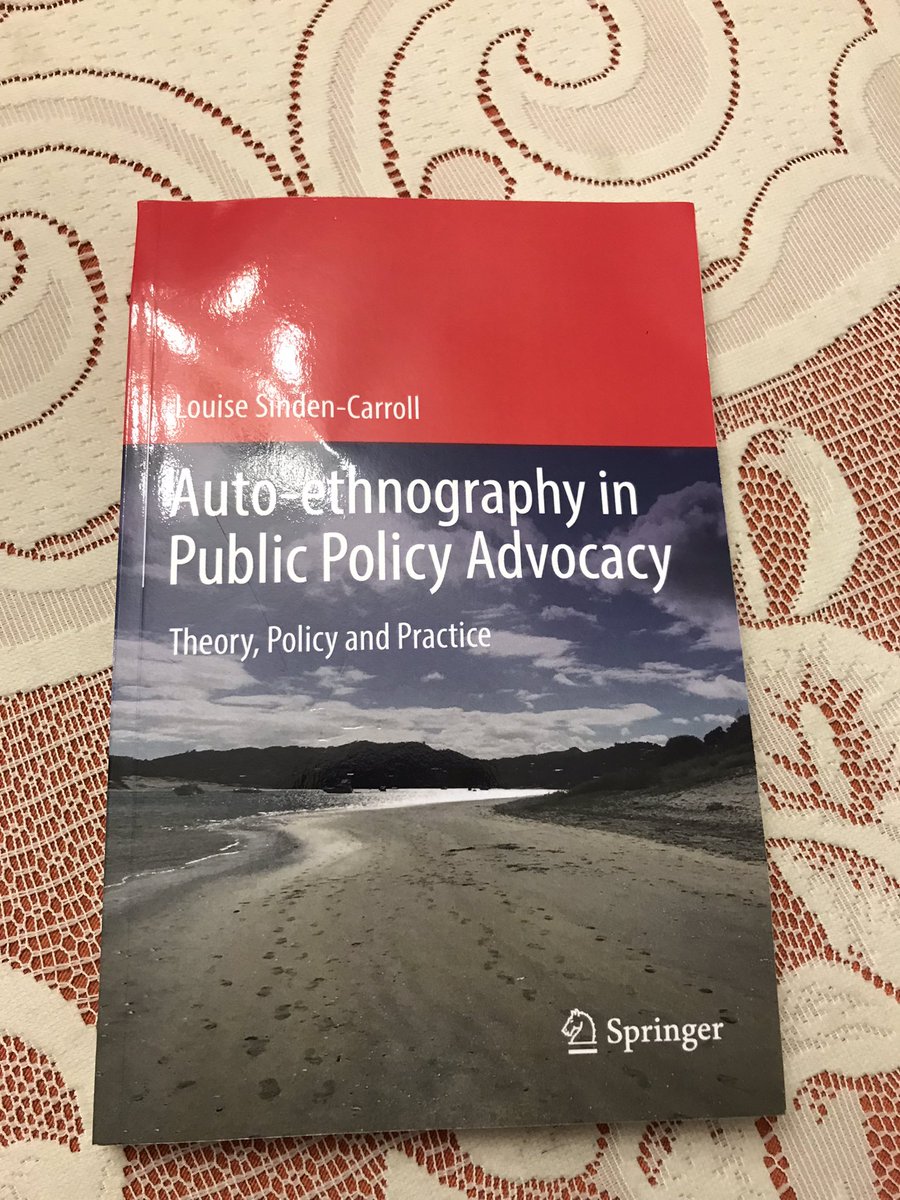
Antier me solicitaron sugerencias de literatura académica sobre "grounded theory" (traducida mayormente como "teoría fundamentada", si bien me gusta más como otros traducen "teoría anclada", o "teoría aterrizada).
Aquí algunas sugerencias. #RPVCuali
Aquí algunas sugerencias. #RPVCuali
Este artículo de Corbin y Strauss es excelente para obtener un mapa completo de lo que es la Teoría Anclada.
Corbin, J. M., & Strauss, A. (1990). Grounded theory research: Procedures, canons, and evaluative criteria. Qualitative Sociology, 13(1), 3–21. doi.org/10.1007/BF0098…
Corbin, J. M., & Strauss, A. (1990). Grounded theory research: Procedures, canons, and evaluative criteria. Qualitative Sociology, 13(1), 3–21. doi.org/10.1007/BF0098…
Este artículo de Kathy Charmaz, otra de las grandes en Teoría Anclada, es sumamente práctico e instructivo.
Charmaz, K. (2006). Constructing grounded theory: a practical guide through qualitative analysis. Book (Vol. 10). doi.org/10.1016/j.lisr…
Charmaz, K. (2006). Constructing grounded theory: a practical guide through qualitative analysis. Book (Vol. 10). doi.org/10.1016/j.lisr…
Este artículo compara Glaser y Strauss contra Strauss y Corbin
Heath, H., & Cowley, S. (2004). Developing a grounded theory approach: a comparison of Glaser and Strauss. International Journal of Nursing Studies, 41(2), 141–150. doi.org/10.1016/S0020-…
Heath, H., & Cowley, S. (2004). Developing a grounded theory approach: a comparison of Glaser and Strauss. International Journal of Nursing Studies, 41(2), 141–150. doi.org/10.1016/S0020-…
Tres notas rápidas ahorita que estamos pasando por la discusión Glaser y Strauss:
1) Heath y Cowley 2004 parecen obviar (casi denegar) la contribución de Juliet Corbin al estudio y aplicación de Teoría Anclada. Eso me parece NEFASTO.
1) Heath y Cowley 2004 parecen obviar (casi denegar) la contribución de Juliet Corbin al estudio y aplicación de Teoría Anclada. Eso me parece NEFASTO.
2) Hay múltiples variedades de Teoría Anclada, y me parece importante reportar qué se usó en la sección de métodos, "utilicé el enfoque de Charmaz de teoría anclada" o "utilicé un enfoque INSPIRADO por Strauss y Corbin que modifiqué de acuerdo a las necesidades de mi proyecto"
Este artículo me gusta porque habla de Teoría Anclada, notas de campo y memorándums teóricos.
Montgomery, P., & Bailey, P. H. (2007). Field notes and theoretical memos in grounded theory. Western Journal of Nursing Research, 29(1), 65–79. doi.org/10.1177/019394…
Montgomery, P., & Bailey, P. H. (2007). Field notes and theoretical memos in grounded theory. Western Journal of Nursing Research, 29(1), 65–79. doi.org/10.1177/019394…
3) Me parece importante hacer notar que las actividades de codificar y escribir memorándums analíticos, son inherentes tanto a la Teoría Anclada como a otras variedades de métodos de análisis cualitativo.
Por ello siempre enseño cómo capturar datos y cómo analizarlos.
Por ello siempre enseño cómo capturar datos y cómo analizarlos.
Ahora los clásicos:
Corbin, J., & Strauss, A. (2015). Basics of Qualitative Research: Techniques and Procedures for Developing Grounded Theory (Fourth Edition). Los Angeles, London, New Delhi, Singapore, Washington DC, Boston: SAGE Publications Ltd.
Corbin, J., & Strauss, A. (2015). Basics of Qualitative Research: Techniques and Procedures for Developing Grounded Theory (Fourth Edition). Los Angeles, London, New Delhi, Singapore, Washington DC, Boston: SAGE Publications Ltd.
Charmaz, K. (2006). Constructing grounded theory: a practical guide through qualitative analysis.
y
Glaser, B. G., & Strauss, A. L. (2017). The discovery of grounded theory: Strategies for qualitative research. Routledge.
Noten que G&S es una reimpresión del original 1967.
y
Glaser, B. G., & Strauss, A. L. (2017). The discovery of grounded theory: Strategies for qualitative research. Routledge.
Noten que G&S es una reimpresión del original 1967.
Ahora bien, creo que es importante leer los clásicos (que ya se los puse en este hilo) y también los últimos desarrollos. Entre éstos:
Bryant, A., & Charmaz, K. (Eds.). (2012). The SAGE Handbook of Grounded Theory. Los Angeles, London, New Delhi, Singapore: Sage Publications.
Bryant, A., & Charmaz, K. (Eds.). (2012). The SAGE Handbook of Grounded Theory. Los Angeles, London, New Delhi, Singapore: Sage Publications.
Bryant, A. (2019). The Varieties of Grounded Theory. Los Angeles, London, New Delhi, Singapore, Washington DC, Melbourne: SAGE.
Por cierto, qué chistoso que en muchos círculos no se le ponga tanta atención al trabajo de Antony Bryant, pero colaboró muy cerca de Kathy Charmaz.
Por cierto, qué chistoso que en muchos círculos no se le ponga tanta atención al trabajo de Antony Bryant, pero colaboró muy cerca de Kathy Charmaz.
Y finalmente, el que creo que se debería también de enseñar en cursos de posgrado:
Bryant, A., & Charmaz, K. (Eds.). (2019). The SAGE Handbook of Current Developments in Grounded Theory. Los Angeles, London, New Delhi, Singapore, Washington DC, Melbourne: SAGE.
Bryant, A., & Charmaz, K. (Eds.). (2019). The SAGE Handbook of Current Developments in Grounded Theory. Los Angeles, London, New Delhi, Singapore, Washington DC, Melbourne: SAGE.
• • •
Missing some Tweet in this thread? You can try to
force a refresh






